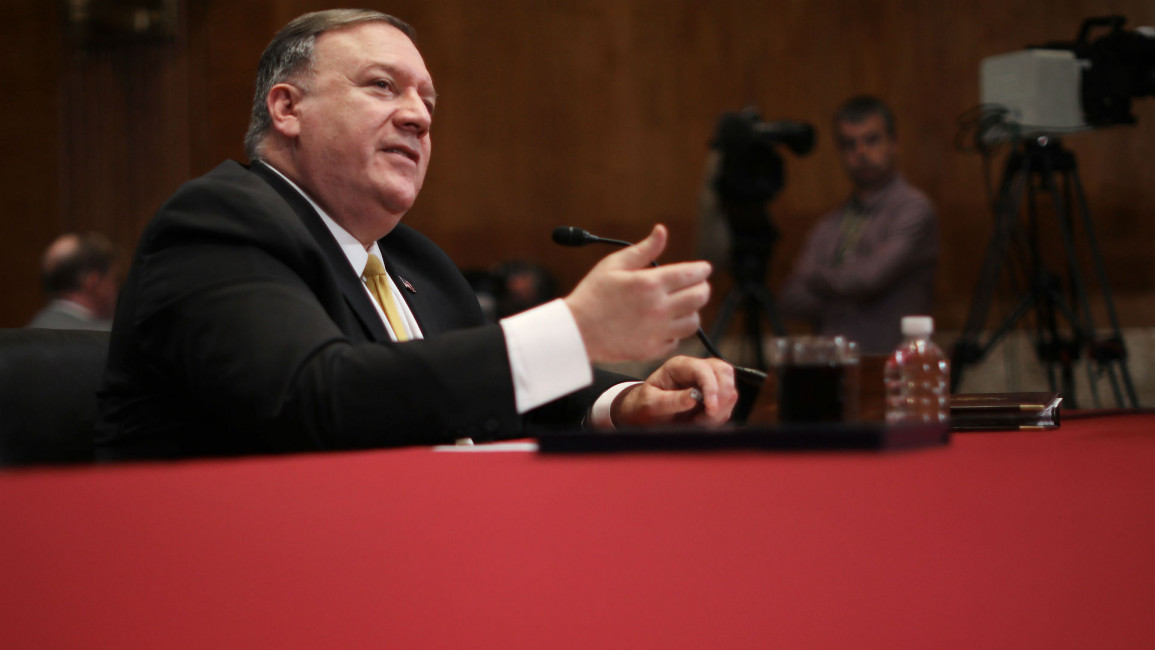Pompeo urges Saudi Arabia to release US citizens detained in new crackdown
US Secretary of State Mike Pompeo on Wednesday urged the release of US citizens detained in a recent crackdown on activists in Saudi Arabia.
Pompeo, who usually treads lightly when airing concerns with Saudi Arabia due to the kingdom's close ties with President Donald Trump's administration, said that he had personally spoken with Saudi officials "about every single American who we know to be wrongfully detained".
Although Pompeo declined to name the US citizens detained by Saudi Arabia, campaigners identified two dual US-Saudi nationals among nine writers and academics detained by Riyadh in a renewed crackdown last week.
"We've urged them to make a better decision, saying that those folks need to be released," he told the Senate Foreign Relations Committee.
"It's inconsistent with the relationship between our two countries. We don't think it's in the Saudis' best interest to do this either."
Dual national Salah al-Haidar, the son of women's activist Aziza al-Yousef, was among those detained last week in the crackdown linked to eleven Saudi women activists currently on trial, London-based rights group ALQST said.
Yousef is one of the women activists on trial on charges that include contacting foreign media, diplomats and rights groups.
Some of the women have alleged that they have faced torture and sexual abuse while in prison.
US-Saudi citizen Bader al-Ibrahim, a writer and a doctor, was also detained.
Pompeo may also have been referring to Dr. Walid Fitaihi, a dual US-Saudi national detained in Crown Prince Mohammed bin Salman's sweeping "anti-corruption probe" in 2017.
His son Ahmed Fitaihi has alleged he was tortured while being held in the Ritz Carlton Hotel in Riyadh with around 200 other prominent Saudi figures.
While Saudi Arabia has faced heated bipartisan criticism from US lawmakers after the killing of Saudi journalist Jamal Khashoggi in October, the Trump administration has pledged to preserve its warm relationship with the kingdom due to its lucrative purchases of US weapons and shared hostility to Iran.
The US state department on Monday barred entry to the US to 16 Saudi nationals over their role in the murder of Khashoggi in the Saudi consulate in Istanbul.
Senators nonetheless on Wednesday easily confirmed Trump's choice to be the US ambassador in Riyadh, John Abizaid, a top US general from the Iraq war.
Ninety-two senators voted to confirm Abizaid, a fluent Arabic speaker of Lebanese Christian descent. The seven senators who voted against him included four seeking the Democratic nomination for president - Kirsten Gillibrand, Kamala Harris, Bernie Sanders and Elizabeth Warren - with a fifth candidate, Cory Booker, not voting.
Lawmakers, however, have also defied Trump by seeking to cut off US support for Saudi forces in Yemen, alarmed at high numbers of civilian casualties in the country that the United Nations calls the world's worst humanitarian crisis.



